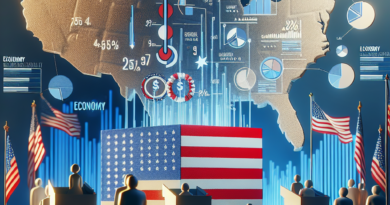“GOP Targets Kamala’s Deputy Tim Walz as ‘China Ally'”
“`html
Kamala Harris Chooses Walz: Political Implications and Concerns
Kamala Harris recently made headlines by dismissing Josh Shapiro, the Governor of Pennsylvania, as her potential vice-presidential pick due to his strong ties to Israel, which could complicate her campaign in Michigan, a state with a significant pro-Palestinian Muslim population.
Instead, she opted for Timothy Walz, the Governor of Minnesota.
This choice raises critical questions, especially given Walz’s controversial connections with China.
With China being viewed as a strategic adversary, Walz’s historical relations with Chinese authorities might create suspicion among the American public and political leaders.
The bipartisan establishment, from Senate Majority Leader Chuck Schumer to House Speaker Mike Johnson, has widely recognized China as part of an “Axis of Evil,” inclusive of Iran and Russia, posing a significant geopolitical threat to the United States.
Public Awareness and Corporate Interests
American public awareness regarding the China threat remains relatively low.
While Trump advocates for 20% tariffs on Chinese imports to counter communism’s economic expansion, corporate interests, academic institutions, and major digital, entertainment, and sports networks remain intertwined with the Chinese market, creating a challenging dynamic.
The case of Tim Walz epitomizes the uneasy relationship between the Chinese Communist Party and American ‘useful idiots’ who, blinded by short-term benefits, overlook the pressing dangers.
Historically, the left in America has exhibited attraction towards real communism, initially with the Soviet Union and later with dictatorships in Cuba and Venezuela, culminating in relations with the Chinese Communist Party, established during Nixon’s thaw and expedited by Clinton’s WTO entry.
Ongoing Investigations and Concerns
Currently, the House Committee on Oversight is investigating Walz’s connections to the Chinese government.
Chairman James Comer, a Republican from Kentucky, has escalated concerns, referring to Walz’s longstanding ties with Chinese officials in a letter to FBI Director Christopher Wray.
These ties allegedly have the potential to influence Walz’s decision-making as Governor and, should he advance to the Vice Presidency, on a larger scale.
As Walz’s legislative history comes under scrutiny, fears grow surrounding his affiliation with Chinese entities and officials.
Comer highlighted Walz’s admission of traveling to China approximately 30 times and organizing student trips funded by the Chinese government, alongside being a member of a pro-Beijing organization during his time in Congress.
Conclusion: A Critical Juncture for American Politics
The oversight committee’s investigations exemplify the broader concerns regarding Walz’s connections and the implications these have for U.S.-China relations.
As Walz’s future role becomes clearer, issues surrounding allegiance, trust, and national security will undoubtedly be paramount in the upcoming political landscape.
In light of these revelations, it raises an essential question: can an American leader navigate the complexities of international relations effectively without undue influence from adversarial powers?
“`




